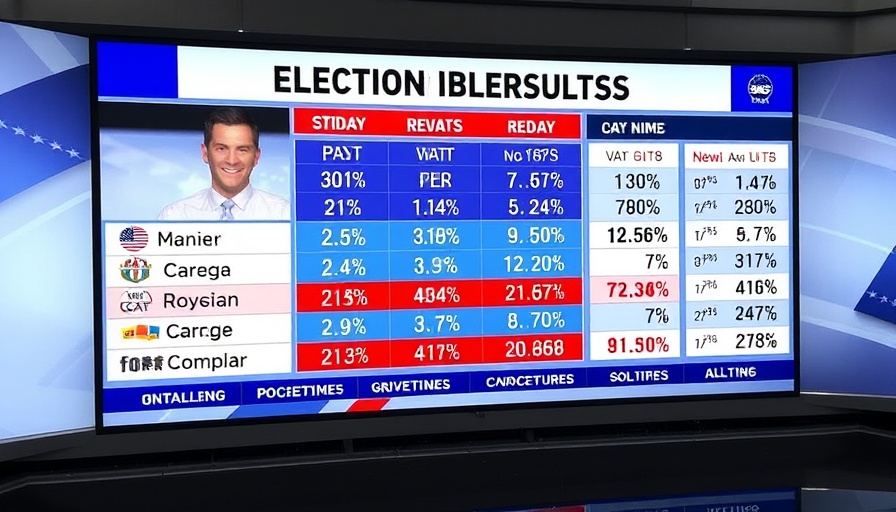
The Michigan Primary: A Crucial Turning Point in Local Politics
The Michigan primary held on August 5 has stirred significant discussions within the Detroit community. This electoral event is not just another date on the calendar; it's a pivotal point where voters express their needs and expectations for future leadership. With key races including the mayoral and city council elections, this primary shapes the trajectory of governance in Detroit, potentially impacting local policies and community priorities.
In 'Michigan August Primary results and what's next', the discussion dives into the pivotal impact of the primary election, exploring key insights that sparked deeper analysis on our end.
Mary Sheffield's Historic Victory
The standout moment of the night was Mary Sheffield’s decisive win in the mayoral primary. Attaining 52% of the total votes, Sheffield has positioned herself as a frontrunner for the general election, aiming to become the first Black woman to hold the mayoral office in Detroit. This historic candidacy reflects not only a milestone for representation but also raises expectations for inclusive governance.
Understanding Voter Turnout Trends in Detroit
Turnout for the primary revealed a troubling trend in civic engagement within the city. Political scientists note a continued decline in voter participation, with only about 17-18% of eligible voters casting their ballots. Dr. Peter Trumbore highlights that many residents feel alienated from the political process, often perceiving that their vote does not lead to meaningful change in their lives. Addressing such sentiments is critical for future elections, as increased participation is vital for a truly representative democracy.
Community Connection: The Soul of Local Elections
As experts and commentators have pointed out, the disconnect between citizens and the political landscape is palpable. Many residents do not see candidates actively engaging with their communities. Sheffield emphasized connecting with neighborhoods and ensuring voices are heard, which is critical not just for winning votes but also for fostering trust in leadership. Future candidates must take cues from her approach and prioritize grassroots engagement.
Economic and Social Issues at the Forefront
Karen Dumas, a prominent Detroit columnist, emphasizes that Detroit’s economic realities are often glossed over in political narratives. While flashy developments and new policies are touted, many Detroiters still face challenges such as inadequate job opportunities, housing instability, and rising crime rates. For Sheffield, articulating a realistic plan addressing these community concerns will not only solidify her support but also pave the way for effective governance.
What Lies Ahead: The General Election Dynamics
The general election approaches, with two candidates—Jenkins and Kinloch—vying for a chance to challenge Sheffield. Both candidates have begun to rally their base, as evidenced by Kinloch’s support from his church community. The dynamics of this race will significantly depend on voter mobilization and the candidates’ abilities to convince Detroiters that they are the leaders they need.
Confronting Complex Challenges
As political pundits assess the landscape, they urge all candidates to consider complex issues beyond mere campaign slogans. It becomes crucial for them to develop actionable plans that resonate with constituents’ lived experiences. The forthcoming election cycle requires honed connections to the voters, ensuring that all efforts are aimed at addressing real issues rather than superficial promises.
The Call to Action: Engaging Detroiters in the Electoral Process
As the primary results settle, Detroiters are encouraged to stay informed and engaged as the general election draws near. Local news outlets play a vital role in educating the public about how to vote, where to vote, and why their participation matters. Community discussions, educational forums, and outreach programs can significantly improve voter turnout and foster a sense of collective responsibility.
Conclusion: A Community on the Brink of Change
In conclusion, the August primary in Michigan has underscored a critical moment for the city of Detroit. With historical implications tied to candidates like Mary Sheffield, the outcomes of this election will reverberate throughout the community. As we look toward the general election, there is an opportunity for transformation through informed voting and civic participation. All eyes will be on Detroit—how will residents respond?
 Add Row
Add Row  Add
Add 



Write A Comment